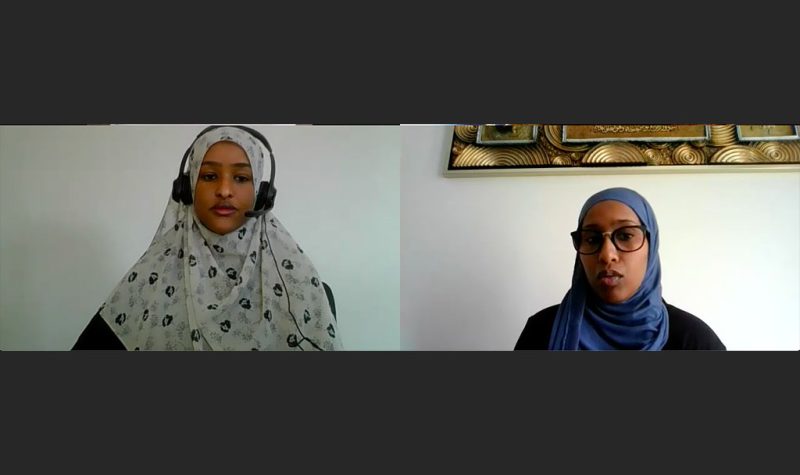By the end of May, Ontarians aged 12 and older had the ability to book their COVID-19 vaccine appointments. As vaccine rollout picks up, it is starting to feel as though the end of the pandemic is in sight.
Although the difficulties the pandemic brings may start to let up, the inequities the pandemic exacerbated are long from being over.
Urge Ibrahim from the South-East Ottawa Community Health Centre (SEOCHC) and Nimo Farah from the Ottawa Newcomer Health Centre spoke about how the heightened difficulties for racialized communities caused by the pandemic has helped build awareness. But despite the growing awareness, they said, the conversations around racial inequities need to continue after the pandemic, when COVID-19 is no longer highlighting the systemic imbalances.
Ibrahim worked with SEOCHC on a photo project called “It’s Different for Us” in February. The photo project highlighted the disproportionate way the pandemic affected racialized youth in Ottawa’s South-East end.
“A lot of the youth had very similar struggles which were around financial barriers,” Ibrahim said. “A lot of the work that their parents have is precarious work, so youth had to step up and work.”
Farah said that the inequities highlighted in the “It's Different for Us” project are inequities that she saw in the larger community as well.
“The themes that Urge mentioned are predominantly the main concerns that we are seeing from the community members,” Farah said. “Clients that are accessing our services through our centre are not only having challenges with health but with social determinants of health.”
Farah said that these challenges have to do with security and finding work. With the exacerbated difficulties for racialized communities, Farah said she has definitely noticed a shift in how people speak about racial inequities but in order for meaningful change to happen, people cannot forget the conversations of racial justice that the pandemic brought to the forefront.
“Inequities have existed prior to the pandemic,” Farah said. “These communities were already disproportionately impacted. It’s just now that our awareness has actually increased. I am hopeful that this awareness will transition to more supports coming into the community and continued partnerships as things open up.”
Ibrahim added onto Farah’s point and said that it is not just about continuing the conversation but allowing racialized people to use their voices in these conversations.
“As long as we give youth and racialized communities an opportunity to share their struggles and give them a platform to be heard, I think these discussions will continue to happen,” Ibrahim said. “Community organizations such as ourselves will continue to advocate for these communities and bring forth their concerns.”
Both Farah and Ibrahim said that if there is anything they want people to remember about the pandemic, they want people to remember how it highlighted that more work needs to be done.
Ibrahim said that pandemic or not, the work to create community support for racialized people is much needed.
“There’s a lot more work to do. Although the pandemic will eventually phase out, the system does need a lot of work,” Ibrahim said.
Edited June 8, 2021: Nimo Farah is with the Ottawa Newcomer Health Centre not SEOCHC.


